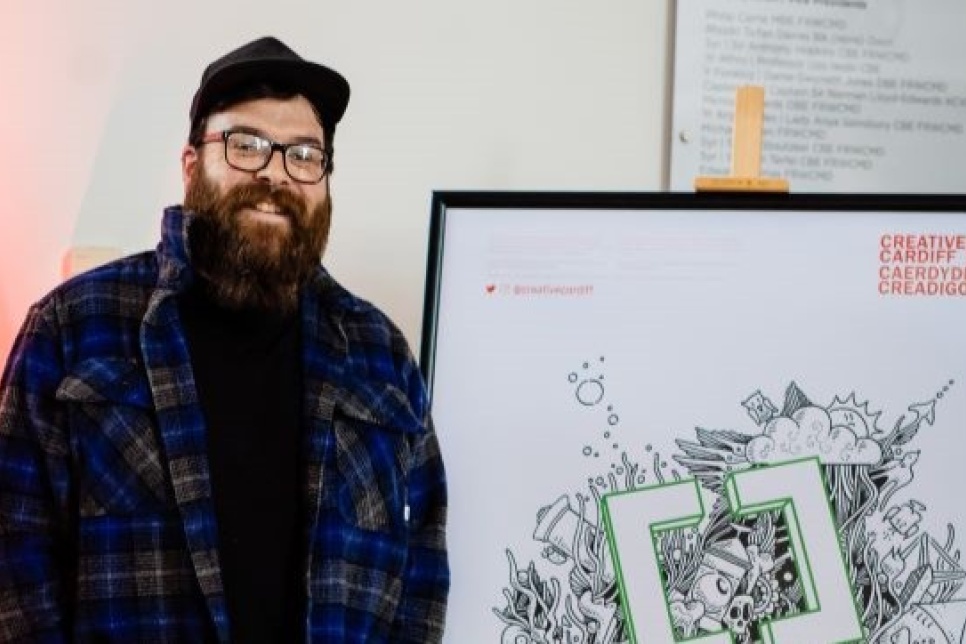Since the first day of 2024, Swansea-based artist Simeon Smith has been doubling the price of his art each time a piece sells in an attempt to highlight how corporate profits are driving the cost of living crisis. In a series of videos titled Hyperinflation, viewed over 85,000 times on TikTok and Instagram, he has sold nine original acrylic and ink abstract paintings, starting at £1 and doubling the price each time a viewer purchases a piece online. The ninth piece sold for £256 and the tenth is available at double the price again.
As the UK Office for National Statistics announce that inflation in December 2023 again increased to 4%, Smith hopes that his colourful artwork and unconventional pricing model will provide an accessible talking point for people to discuss how numbers in the news are affecting their living standards.
“The level of support for the project has been totally unexpected,” says Simeon. “By far the most compelling part of this all has been the comments from people telling me they’d discussed the project with their partner, friends or coworkers, and had conversations about how the cost of living crisis is affecting them.”
Messages left on the videos read:
“I'm really invested to see how high this can go. A comment on rampant capitalism that has become a showcase on how far people will support the arts.”
“Beautiful! Each one is better than last.”
“I told my husband about your project last night and it sparked a great conversation! [It] raised the question of fairness. I think it leaves a person with a lot of questions about what fairness really is.”
“I really love this idea [...] Really excited to see how far this goes.”
With an upcoming exhibition at Swansea MAD, Simeon plans to continue the Hyperinflation project both online and in person. The tenth piece in the series is currently available but with prices doubling with each painting the future of the project is uncertain. As TikTok user Sea-King highlights, “The sheer belief that the first art work could be worth more later will drive people to buy [...] but at what point does it become greed?”

